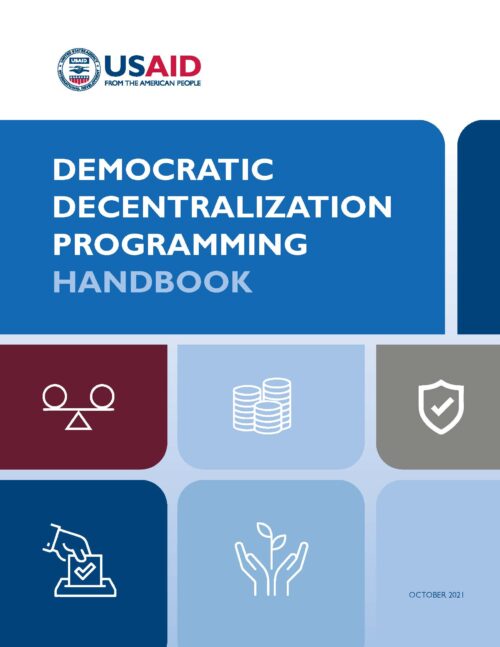USAID Democratic Decentralization Programming Handbook
Preface The “Democratic Local Governance Programming Handbook’’ (Handbook) is a long-running publication of USAID’s Center for Democracy, Human Rights and Governance (DRG Center). It was first published in May 2000. It then received a major reformulation in June 2009. Since then, the Center commissioned additional research on decentralization. This edition…
